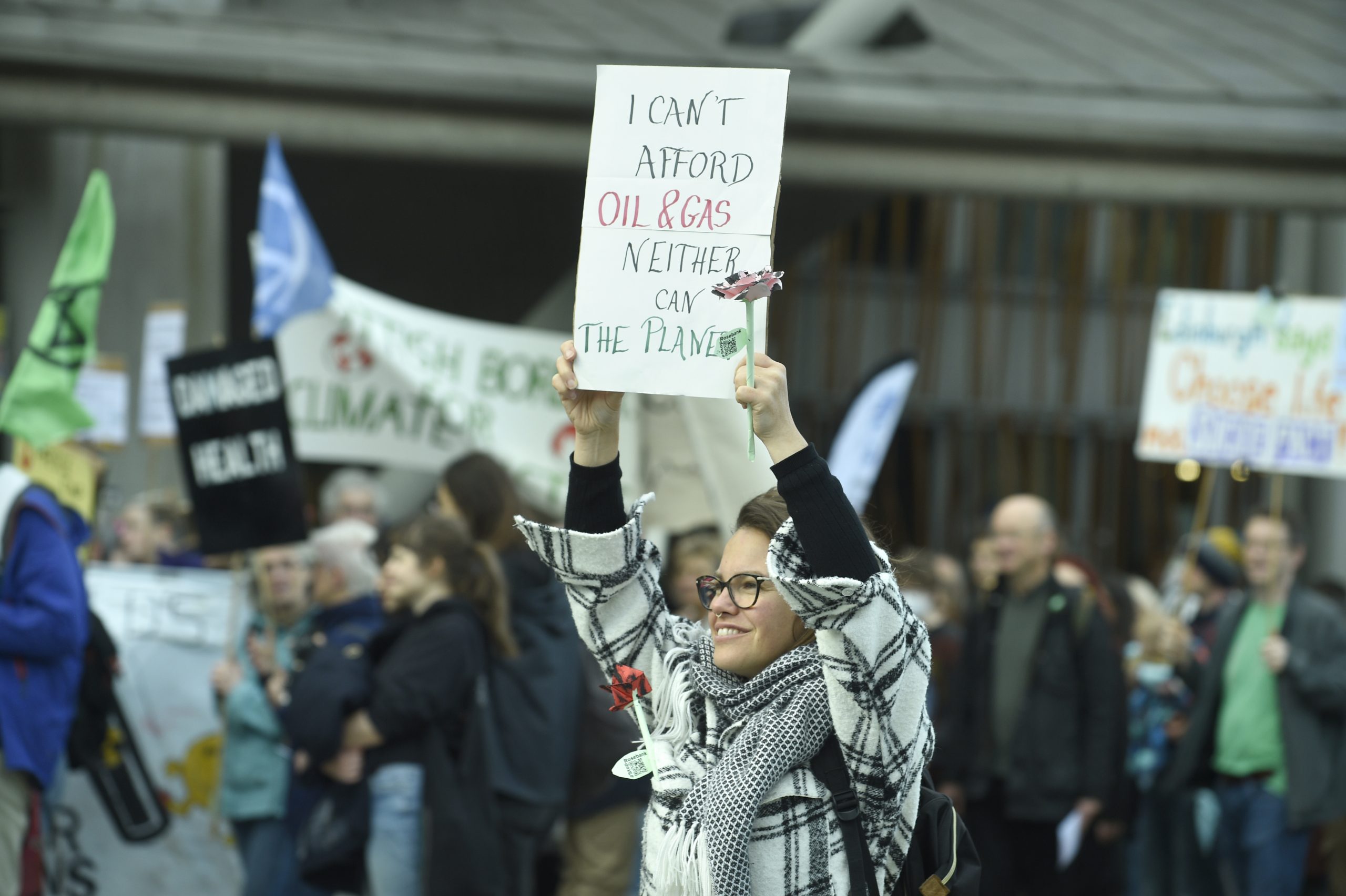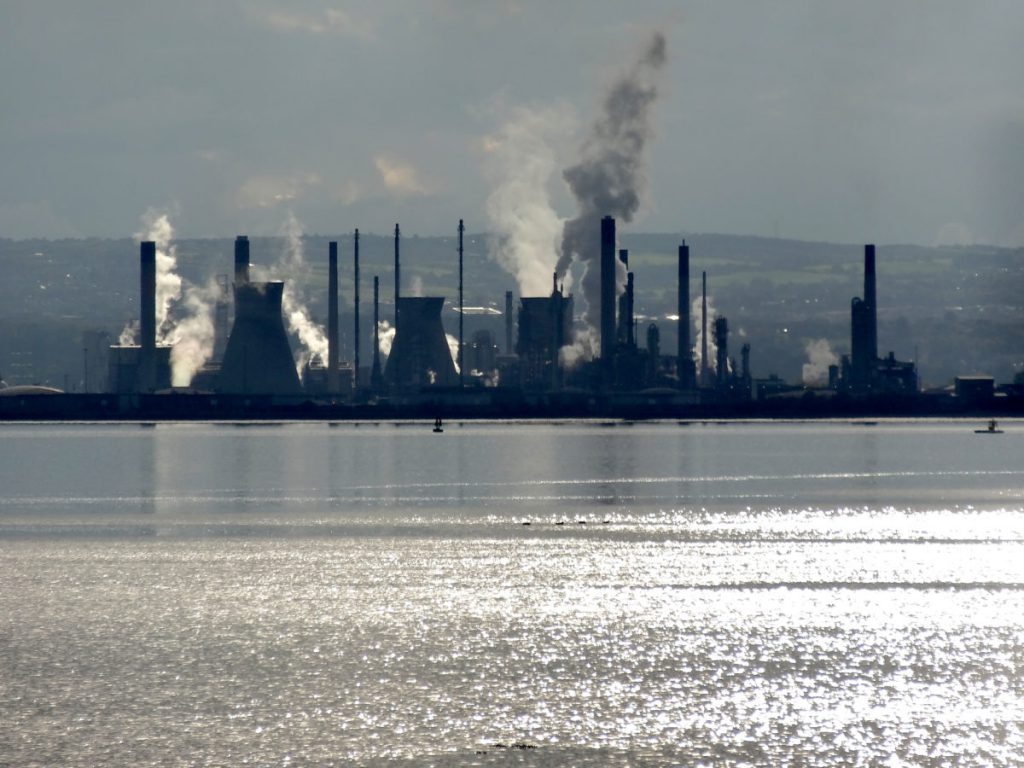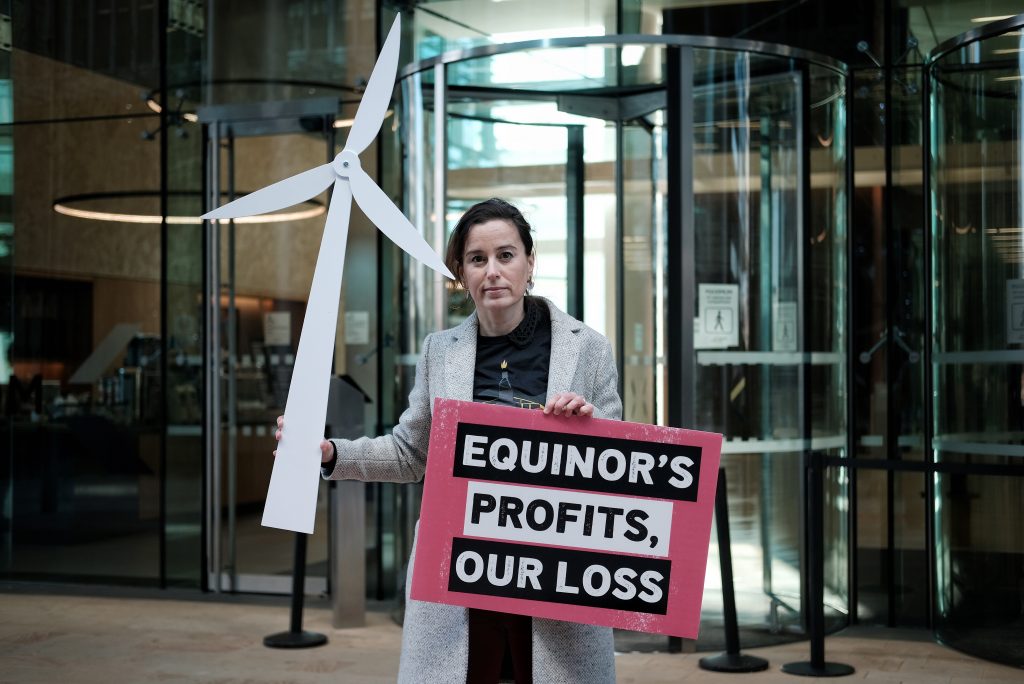
Why new oil extraction won’t lower bills
The UK Government loves to talk about ‘energy security’, using it as a catch-all excuse for ramping up the extraction of oil and gas from the North Sea. It’s a major driver of their recently updated Net Zero plan as well as their reasoning behind pushing forward with a new licensing round for oil and gas and the huge Rosebank oil field.
However, their argument that more oil and gas extracted from the North Sea equals greater energy security and lower bills for people in the UK doesn’t hold up to scrutiny.
The UK Committee on Climate Change, independent advisors to the UK Government, have made it clear that new oil and gas will do nothing to lower bills. The recently released independent analysis of the Energy System and Just Transition by Ernst & Young for the Scottish Government clearly shows that demand and supply of oil and gas in the UK are not as closely connected as the UK Government would like us to believe.
Here is why new oil extraction won’t lower household bills:
1. 80% of the oil extracted in the North Sea is exported
It’s not the case that the oil extracted in the North Sea goes straight into powering the UK’s energy system. The licences to drill for oil in the North Sea, as well as the equipment and platforms etc required to actually extract the oil, belong to the companies doing the extraction. The likes of Shell and BP are under no obligation to sell this oil to the country it was extracted in. In fact, it is usually more profitable for them to export it and sell for the best price on the open market.

Oil and gas prices are set internationally and are prone to fluctuation, as we have seen in the last few years with the covid pandemic bringing prices down, and the invasion of Ukraine pushing prices through the roof. 80% of oil and 61% of gas extracted from the North Sea is exported and sold on the open market.
Arguments that oil extracted closer to home is lower in emissions (as it doesn’t have to travel so far) therefore don’t hold up – the oil extracted in the North Sea is almost always shipped overseas to make the biggest profits for the oil companies.
2. Most of the oil and gas we use in the UK is imported
Correspondingly, most of the oil and gas that we use in the UK is imported from other countries. The total demand for oil and gas in Scotland only makes up 20% of what is extracted from the North Sea.
However, there are several factors which mean that the oil and gas we consume must be imported.
For one thing, the UK doesn’t have the capacity to store much oil and gas, so what comes in through pipelines and tankers is pretty much used straight away, either for heating homes or producing electricity (for gas) or being refined into different products such as petrol (for oil).

For another, the way the pipeline infrastructure works means that some fields in the Scottish North Sea pipe oil and gas directly to terminals in England and the rest of the UK, while others in the Norwegian part of the North Sea connect directly to Scottish terminals.
Scotland only has one refinery, at Grangemouth, which often imports crude oil products to refine from places like Nigeria or the USA because it is cheaper. Despite having the capacity to fulfil Scotland’s total demand for refined oil products, Grangemouth exports 40% of its output meaning that Scotland still needs to import a significant amount of refined products to fulfil demand.
3. Increasing production in the North Sea adds to the total amount of oil in circulation
As we have seen, oil and gas extracted in the North Sea does not necessarily stay close to home. The vast majority of the time, it enters the open market, adding to the total amount of oil and gas in circulation around the world.
With the global supply of oil and gas consistently increasing, there is little incentive for consumers to reduce demand for these products. Therefore, as the global supply of oil and gas increases, so does our overall consumption. To cut consumption and demand for oil and gas, there not only need to be alternatives in place, this ever-increasing supply must also be curbed.
4. Oil and gas prices are extremely volatile, renewables are not
The interconnectedness of the global market for oil and gas means that when supply is squeezed in one place, prices reflect this internationally. We saw this when Russia invaded Ukraine and many countries in Europe placed sanctions on Russian gas imports. Fluctuations in the price of oil and gas are fairly common, and have a big impact both on the workforce, who lose out on jobs and contracts, and on energy bills, as the higher prices are passed on to consumers.
On the other hand, renewable energy is much more resilient to global price fluctuations and is consistently becoming cheaper and more efficient to produce. Currently the cost of producing energy from offshore wind is nine times less than producing the same energy from gas. Renewable energy feeds straight into the grid, so energy produced in the UK is actually used in the UK.
However, to ensure that the public recoup the full benefits of our massive potential for renewable energy production, renewable energy needs to be publicly owned, with the interests of communities and workers at the centre of decision making.
5. Oil and gas is heavily subsidised by the public purse
UK Energy Secretary Grant Shapps insists that the growth of the UK’s economy through the last century is due to access to “cheap abundant energy”, ie. North Sea oil and gas. But in reality, there is nothing cheap about oil and gas from the North Sea. Historically, and into the present day, the oil and gas industry in the UK has been propped up by government subsidies, tax breaks and financial incentives to make the oil and gas they extract seem artificially cheap.

Even now, the UK Government’s windfall tax on the excess profits of the oil and gas industry contains a massive, deliberate loophole which offers a 91% tax break to companies that invest in new fossil fuel developments in the North Sea.
To put this into context, this means that Equinor, the developers of the Rosebank oil field to the west of Shetland, will receive a £3.75 billion tax rebate just for developing the field if it is approved. This is 91% of the total cost of developing the field, which will now cost Equinor only £350 million to build.
The idea of ‘cheap’ oil and gas completely fails to take into account the externalised costs of burning fossil fuels, which is of course climate change. It is estimated that the total cost of the losses and damages sustained in vulnerable countries due to climate change is currently over $500 billion and rising.
It’s clear that when the UK Government talks about energy security, it is simply parroting industry lines. It is in the fossil fuel industry’s best interests to continue business as usual for as long as possible so that they can continue to make record breaking profits. To continue along this road is to deny the reality that burning fossil fuels is causing devastating climate impacts across the world.
For true energy security, we need an energy system that’s built on publicly owned renewable energy. This will keep bills stable and free us from destructive, volatile fossil fuels.
Take action to speed us away from fossil fuels
We need everyone on board to build this better future. You can get involved by writing to your MSP to ask them to call for the rejection of the Rosebank project, or by telling the Scottish Government to improve their draft Energy Strategy and Just Transition Plan to speed us away from fossil fuels.
If you’re interested in reading more about what a Just Transition away from oil and gas should look like, the recently released Our Power report details 10 demands from the oil and gas workforce for a truly just transition.
